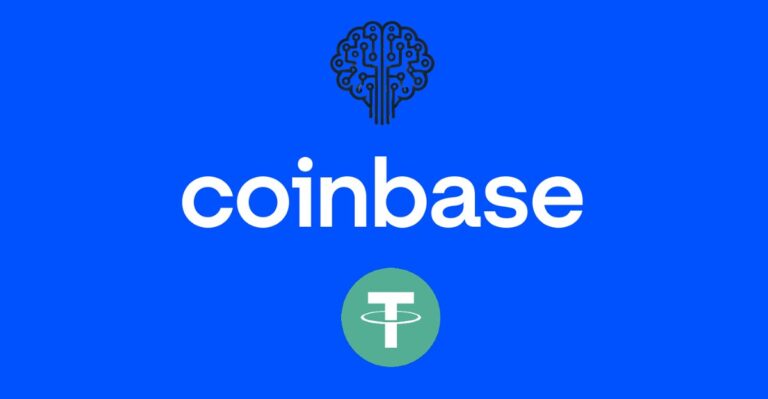Coinbase and Tether recently announced separate platforms designed to bridge the gap between artificial intelligence (AI) and blockchain technology. Coinbase’s “Based Agent” focuses on simplifying the development of autonomous AI agents for cryptocurrency operations, while Tether’s Local AI SDK builds AI applications on top of the blockchain. We value privacy and accessibility when doing so.
Coinbase’s “Base Agent”:
Coinbase’s “Based Agent” platform, announced by developer Lincoln Ma, aims to enable developers to quickly and efficiently build AI-powered cryptocurrency agents. According to Murr, the tool allows developers to create an AI-driven crypto agent in under three minutes. The platform leverages Coinbase’s Layer 2 network, Base, combined with OpenAI’s powerful language models and Replit’s user-friendly development environment.
To begin the build process, developers need to integrate both Coinbase and OpenAI API keys and Replit templates. This streamlined approach significantly reduces the complexity and time required to develop AI agents that can interact with blockchain networks.
“Based Agent” provides support for multiple blockchain networks, including Ethereum, Polygon, and Arbitrum, in addition to Coinbase’s Base network. This multi-chain compatibility extends the potential applications of AI agents beyond the Coinbase ecosystem, allowing developers to build solutions for a broader range of blockchain platforms.
Coinbase CEO Brian Armstrong highlighted the platform’s ability to rapidly deploy AI agents with cryptocurrency wallets and full access to blockchain functionality. This development aligns with Coinbase’s broader vision of an “Agent Web,” where AI-driven autonomous agents powered by blockchain technology play a central role in driving economic activity across digital environments. .
Tether’s local AI SDK
Announced by CEO Paolo Ardoino at the Lugano Plan ₿ conference, Tether’s local AI development kit takes a different approach to integrating AI and blockchain, with a focus on user privacy and broad accessibility. The Modular AI Software Development Kit (SDK) is built on Bare, an open source Javascript runtime, that allows developers to create private peer-to-peer AI applications that can run on a variety of devices.
One of the key features of Tether’s Local AI SDK is its focus on data privacy. By leveraging Bare’s architecture, the SDK allows developers to build applications where all AI processes run directly on the user’s device, eliminating the need to send sensitive data to a centralized server. This approach addresses growing concerns about data security and user privacy in the AI era.
Tether’s commitment to accessibility is reflected in the design of our SDK. Supports multiple AI models including Marian and Llama, giving developers flexibility and choice. Additionally, applications built with the SDK can run on a wide range of devices, from low-cost mobile phones to powerful mainframes, making AI development more inclusive and accessible to a wider range of users. .
Ardoino emphasized the modularity of the Local AI SDK and the ability to save and load model weighting and fine-tuning data within a peer-to-peer structure, further enhancing privacy. Once testing is complete, Tether plans to release the Local AI development kit as open source software to foster collaboration and innovation within the developer community.


